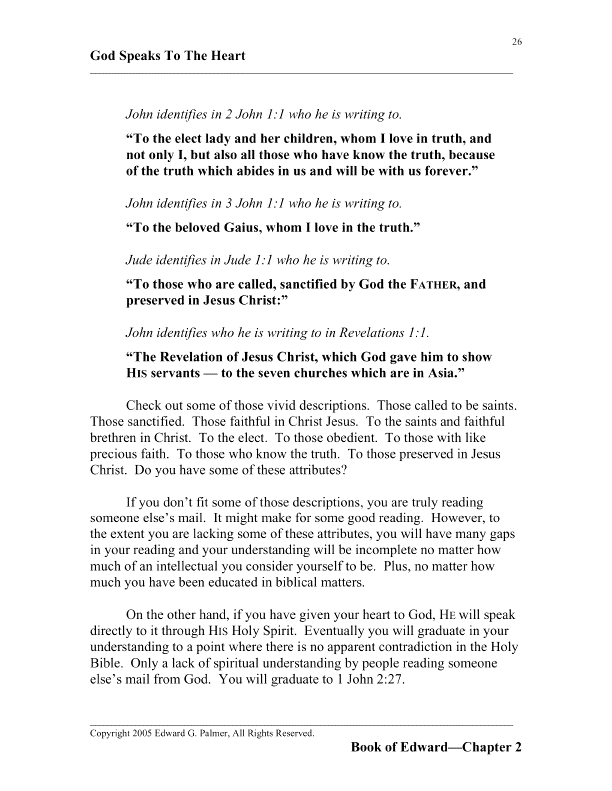John identifies in 3 John 1:1 who he is writing to.
“To the beloved Gaius, whom I love in the truth.”
Jude identifies in Jude 1:1 who he is writing to.
“To those who are called, sanctified by God the FATHER, and preserved in Jesus Christ:”
John identifies who he is writing to in Revelations 1:1.
“The Revelation of Jesus Christ, which God gave him to show HIS servants — to the seven churches which are in Asia.”
Check out some of those vivid descriptions. Those called to be saints. Those sanctified. Those faithful in Christ Jesus. To the saints and faithful brethren in Christ. To the elect. To those obedient. To those with like precious faith. To those who know the truth. To those preserved in Jesus Christ. Do you have some of these attributes?
If you don’t fit some of those descriptions, you are truly reading someone else’s mail. It might make for some good reading. However, to the extent you are lacking some of these attributes, you will have many gaps in your reading and your understanding will be incomplete no matter how much of an intellectual you consider yourself to be. Plus, no matter how much you have been educated in biblical matters.
On the other hand, if you have given your heart to God, HE will speak directly to it through HIS Holy Spirit. Eventually you will graduate in your understanding to a point where there is no apparent contradiction in the Holy Bible. Only a lack of spiritual understanding by people reading someone else’s mail from God. You will graduate to 1 John 2:27.

